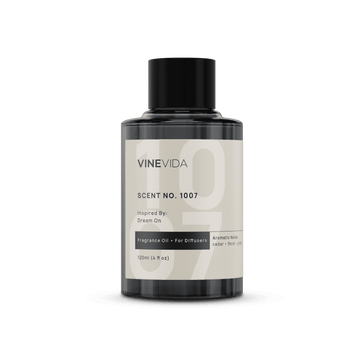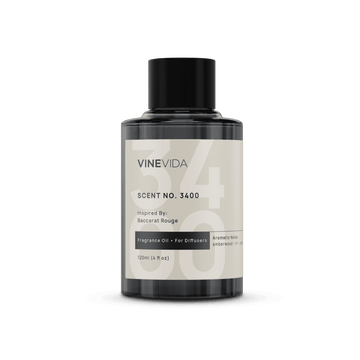What is star anise essential oil good for? The spice is widely distributed throughout southwestern parts of the Asian continent, both as a medicinal ingredient and a Traditional Chinese Medicine Herb used for its antiviral effects. Star Anise essential oil is often used as a breath freshener. In addition, it is traditionally used to settle digestive problems such as griping, colic, or indigestion.
Its antispasmodic and analgesic actions are lovely in massage oils for aches and pains, rheumatism, colic, and cramp. In addition, its expectorant properties are useful for respiratory problems.
One of its components, Shikimic acid, is used to manufacture the flu vaccine. Tamiflu® Star anise possesses several other potentials such as antioxidant, antimicrobial, antifungal, anthelmintic, insecticidal, secretolytic, antinociceptive, anti-inflammatory, gastroprotective, sedative properties, expectorant and spasmolytic, and estrogenic effects. (Patra, 2020)
You might enjoy our post 10 ways to use star anise essential oil.
Botany
Have you ever seen the flower that creates the beautiful star anise seed? It is surprising to see how pretty it is, although unsurprisingly, it looks like a starburst. From it, the evergreen, medium-sized tree then produces star-shaped fruit.
The predominant constituent of star anise essential oil is transantheole, which determines its distinctive aroma. Transantheole has been found to have antimicrobial, anti-inflammatory, and antimicrobial properties.
Interestingly, star anise essential oil has been cited for fragrance as an expectorant European pharmacopeia since the 16th century. It has qualities similar to aniseed essential oil (Pimpinella anisum). Pimpinella essential oil is prohibitively expensive. Star anise essential oil can make a more cost-effective alternative. (Mauseth, 2012)
Luis et al showed star anise essential oil to have antimicrobial abilities against Acinetobacter baumannii, an opportunistic antibiotic-resistant hospital virus that affects the respiratory system. (Howard, 2012)
Also Read: What is Lavender Oil Good for?
Shikimic Acid
Anti Microbial
One of its constituents is used in the manufacture of oseltamivir (Tamiflu®), antiviral medication for influenza A and influenza B, and avian and swine flu. Shikimic acid forms part of a biological process in plants but not humans called the Shikitimic Pathway. Bacteria, fungi, and other pathogens and parasites use this route to replicate, develop and grow. (Derrer, 2013) Because we don't have it, this is a popular pathway for antimicrobial drugs since these pathogens would ordinarily also have to affect human biology to deal with them. When this pathway is targeted, it can't affect the human host since we don't have it. In particular, it is being targeted as an anti-malaria possibility. (Derrer, 2013)
Shikimic acid can be produced by microbial fermentation and extraction or chemically synthesized. The supply of star anise seeds is variable because they are susceptible to weather changes. Star anise trees take around six years to bear fruit, but they have long productive lives. Shikimic acid does pass through distillation into the essential oil and is found in many other plants, although star anise seems to be the richest in it.
It has been demonstrated that shikimic acid is effective against invasions of staphylococcus aureus, although it is still unclear how. A study done with the acid extracted from pine needles suggested that it protects the cell membrane, refusing to allow the bacteria to penetrate it. (Bai, 2015)
Besides human medicine, vaccines are also being developed for swine and avian flu. Indeed star anise seems to be wonderful for birds. Probably the most random factoid I can give you is that when hens have their food supplemented with star anise essential oil, they lay more eggs that last longer. (Yu, 2018) In addition, it was found that broiler chickens fed with Star anise essential oil developed bigger organs and tissues. (Ding, 2020)
Besides the antiviral potential, star anise possesses many other potentials such as antioxidant, antimicrobial, antifungal, anthelmintic, insecticidal, secretolytic, antinociceptive, anti-inflammatory, gastroprotective, sedative properties, expectorant, and spasmolytic, and estrogenic effects. (Patra, 2020)
Herpes Simplex Virus 1
Trials show that star anise essential oil suppressed the viral multiplication of the virus by 99%. The perfect choice to add a small amount of Melissa oil to your lip balm if you are prone to cold sores. (Astani, 2011)
Also Read: What Is Eucalyptus Oil Good For?
Antifungal
Dzamic et al investigated the potential oil star anise essential oil against fungal infection. These can live naturally in humans but also be introduced accidentally through pathogens that have developed in the garden, the home, or through feeling. The team revealed star anise essential oil to be active against:
- Alternaria alternata - a fungus which has been recorded causing leaf spot and other diseases on over 380 host species of plant.
- Aspergillus niger - a fungus that causes a "black mold" disease on certain fruits and vegetables, such as grapes, apricots, onions, and peanuts. It is a common contaminant of food. It makes up a large percentage of the molds found on rose thorns and can be a common cause of fungal infections introduced after being savaged by a thorn.
- Aspergillus ochraceus - often introduced through dried fruits.
- Aspergillus flavus - found on cereal crops.
- Aspergillus terreus - found in soils that can introduce bronchial infections to immunocompromised patients.
- Aspergillus versicolor - associated with damp and moldy environments. It causes liver complaints and, in some cases, can even be carcinogenic.
- Aureobasidium pullulans - are found in many environments but can cause problems after long-term exposure to air conditioning units and humidifiers.
- Candida albicans - found naturally in gut flora, but the main protagonist of oral and vaginal thrush.
- Cladosporium cladosporioides - found on many plants. An important contributor to seasonal allergies.
- Cladosporium fulvium - causes tomato leaf mold.
- Fusarium tricinctumone - of the main causes of head blight and root rot in plants.
- Fusarium sporotrichioides - rots cereal and wheat crops when there has been a late wet harvest.
- Mucor mucedo - causes a black fungus that can be lethal to immunocompromised and diabetic patients.
- Penicillium funiculosum - causes blackspot in pineapples.
- Penicillium ochrochloron - Poisonous mold found in the rye that can cause seizures and bloody diarrhea in humans.
- Phomopsis helianthi - causes canker in sunflower stems.
- Phoma macdonaldi - rots beetroot, oil seed rape, and sunflowers.
- Trichoderma viride - found in soils; is interestingly used as a fungicide and fungus.
- Trichophyton mentagrophytes - causes ringworm in animals.
Among these fungal species, the authors observed the strongest antifungal activity against A. alternata, A. pullulans, C. cladosporioides, C. fulvium, and P. helianthi.
Also Read: What Is Patchouli Oil Good For?
Using Star Anise Essential Oil In The Garden
As we've seen, Star Anise displays tremendously useful in the garden not only for its antifungal abilities as well as its insecticidal qualities, especially against aphids and weavils. (Park, 2016)
I walk a delicate line with essential oil insecticides as a bee shaman. I want my roses to be sumptuous and healthy enough to feed my bees nectar generously. Star anise can help that. It has fungicidal properties and is being researched extensively to preserve cereal crops like wheat.
The problem is that plants design these secondary metabolites that essential oils are made from as selective targets. In other words, they are cleverly manufactured to attract the insects that pollinate the plant but to disrupt the endocrinology of those that might be harmful.
So the question is, do bees pollinate star anise? Moreover, at first glance, you might think they might because they lurve anise hyssop and aniseed, but no…actually, star anise is pollinated by beetles. Now, you wouldn't ordinarily see beetles on your roses because a rose has very little aromatic to say to them. But, nevertheless, if we're introducing star anise that beetles…well, without putting it too delicately…beetles now want to get down and dirty with. So, you might not have aphids on your roses, but you may now attract randy beetles.
So here's the deal. Star anise is a brilliant insecticide. Great for head lice and nits, fleas and ticks, and flying insects….ah.
Also Read: What Is Oregano Oil Good For?
A Sure-Fire Way to Navigate Any Issues…
Remember that essential oils have no fixative abilities. Plants design the secondary metabolites to evaporate and travel. Spray your plants in the evening. Molds and aphids that breed on the plant can be treated safely after the bees have gone to bed.
Remember that essential oils won't mix with water, so you must mix your star anise essential oil with alcohol to disperse it. Alcohol is finely sprayed on the leaves, but it gets onto the roots, it becomes herbicidal. So spray lightly on the upper leaves.
Ratio: 1 part alcohol // 8 parts water // 20 drops essential oil.
Hair Growth
It is not understood how, but shikimic acid also positively affects hair growth. Rat model experiments suggest it may be a novel treatment for alopecia. (Choi, 2019)
Also Read: What Is Juniper Essential Oil Good For?
Star Anise and Hormones
Star anise essential oil has what is called Phyto estrogenic effects. That is to say that it mimics the effects of estrogen in the body. This is wonderful for menstrual and menopausal disturbances but should be avoided during pregnancy.
Perhaps more importantly rat studies suggest that it may disturb male hormones. The testosterone levels of rats treated with star anise essential oil were so badly affected that their ability to produce sperm was reduced. (Helal, 2019) (Makes me wonder what would happen to any cockerels that might be eating with the hens being treated to get bigger eggs…)
Final Word
So, by all means, buy your star anise essential oil to add to your diffuser to get some holiday ambiance going, but don't just put the oil away and forget it until next year. There are so many other ways you can use star anise essential oil for your well-being, improve your veggie patch, and make your garden flourish. Don't forget to add it to your shampoos and conditioners too. Lice-free, lustrous locks, show me a single person who wouldn't love that!
Also Read: What Is Ginger Essential Oil Good For?















